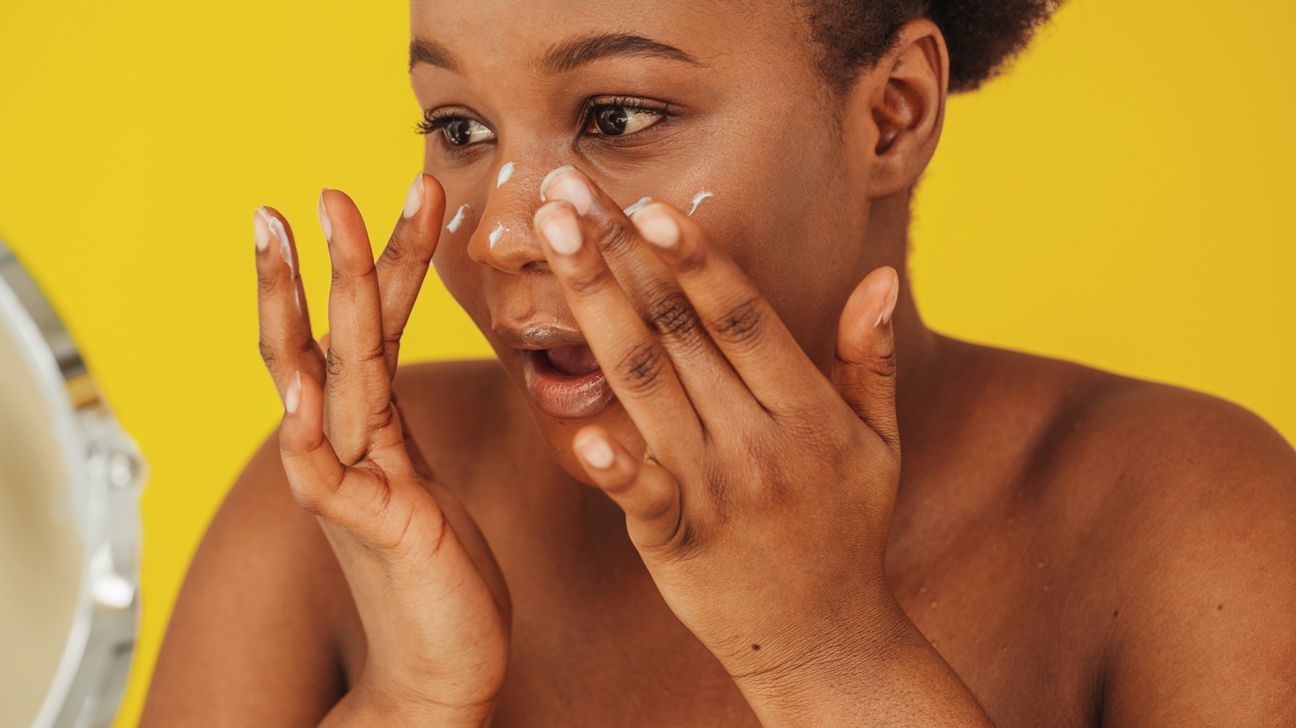It sounds kind of chemical-y, and Googling it might only confuse you further. So what actually is propylene glycol, and is it something you want in your skin care routine?
Propylene glycol sometimes gets a bad rap, and it might seem mysterious, but it’s actually a super common ingredient that shows up in thousands of makeup and skin care items.
It’s a clear, slightly viscous synthetic liquid that works to maintain adequate hydration levels, help active ingredients get into your skin, and keep products from melting in extreme temps (like if you leave your moisturizer in a hot car).
So is the stuff in any way beneficial? And are there any legit harms or risks you need to consider? You’ve got questions, let’s talk answers.

Propylene glycol 101
What it is: A clear, synthetic liquid with hydrating and smoothing properties.
What it does: Attracts more water to the skin and locks in moisture to fight dryness and improve texture.
Where you’ll find it: Pretty much everywhere. Propylene glycol is found in some 14,000 products, including cleansers, moisturizers, lotions, soaps, shampoos and conditioners, deodorants, and shaving creams.
Propylene glycol works in skin care products as both a humectant and a conditioner. Basically, it helps you achieve two things you really want for your skin: Hydration and smoothness.
It can be an especially helpful ingredient if you’re constantly battling dryness, flaking, or gnarly rough texture.
Here’s a closer look at the benefits:
- Locks in moisture. Propylene glycol has humectant properties, meaning it draws water into your skin. It also works as a barrier to keep moisture in your skin, helping it stay hydrated.
- Protects the skin barrier. Propylene glycol’s humectant properties are thought to help protect and repair the skin’s outer barrier, which can be particularly awesome if you’re dealing with conditions like eczema or psoriasis.
- Helps skin look fresher. It’s pretty simple: More hydration and a happy, healthy skin barrier means your skin is more likely to have that glowy, dewy look.
- Helps other ingredients work better. Propylene glycol actually helps other ingredients make their way into your skin. Ultimately, they help that moisturizer or serum do its job so you can get the best possible results.
Propylene glycol is an additive, not something you’d find at the drug store and use on its own. And since it’s in some 14,000 skin and personal care products, there’s a good chance you’re already using it.
Want to reap additional benefits? Start by chatting with your dermatologist. She can recommend products containing propylene glycol that’ll help with your specific skin care concerns, plus give advice on how best to use them.
There are definitely some freaky articles out there labeling propylene glycol as a toxin or carcinogen. So even though the stuff is everywhere… is it actually really bad for you?
Honestly, no. The concerns arise from the fact that propylene glycol is derived from petroleum, which is a possible carcinogen. But the two ingredients aren’t exactly the same thing.
In fact, cosmetic grade propylene glycol is considered safe and likely nontoxic by major orgs like the Environmental Working Group. So for most people, slathering on a lotion containing propylene glycol shouldn’t be a concern.
That said, propylene glycol can definitely irritate some people’s skin and trigger an allergic reaction, especially if you have sensitive skin to begin with. It’s particularly known for causing irritation — i.e., rashes and itching — when applied to the face.
Allergy alert: Watch for these signs
Notice redness, irritation, or itching after using a product containing propylene glycol? Stop using it and contact your dermatologist. You might have a skin allergy to the ingredient.
So if your skin is prone to acting up with new products, definitely proceed with caution. patch test a new product containing propylene glycol on a small are before using it all over your face or body.
If the patch test area doesn’t cause redness, irritation, or itching after 24 hours, you’re probably good to go. But if it makes your skin freak out, steer clear.
Keep in mind that it might not necessarily be the propylene glycol that’s causing the problem (skin care products contain a lot of ingredients!). But you should run the issue by your dermatologist to get their take.
Your derm might suggest testing you for a skin allergy to propylene glycol or another ingredient in the product to try to figure out what the culprit ultimately is.
Finally, don’t confuse propylene glycol with ethylene glycol. Even though they’ve got similar names, the latter is a known toxin that’s used in antifreeze. In other words, definitely not something you’d want anywhere near your skin.
Propylene glycol is used as a moisturizer and skin softener in literally thousands of personal care products. It can be super helpful for fighting dryness and improving your skin’s overall texture. And while it’s generally considered safe, it’s not for everyone.
The ingredient is a common irritant, so if you have sensitive skin or skin allergies, do a patch test with new propylene glycol-containing products before using the stuff all over.

